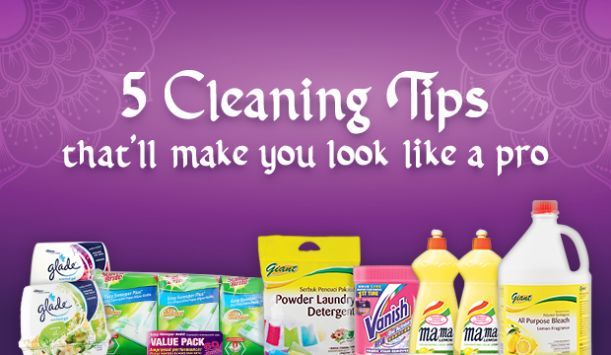Good House Cleaning And Hygiene Practices To Protect Yourself From Illness
Have you ever fallen sick because someone beside you on the train was coughing or sneezing? Common contagious illnesses like the flu are spread either through direct or indirect transmission. Direct transmission is where the bacteria is spread from one person to the other through droplets and possibly through the air. On the other hand, indirect transmission happens when people accidentally infect themselves after touching contaminated surfaces. Understanding how common illnesses are spread informs how we can keep them at bay. In this article, learn how to thoroughly disinfect your home and office and gain tips on how to maintain good personal hygiene, all in an effort to keep you and your loved ones healthy!
1. How to disinfect and organise your home to prevent sickness?
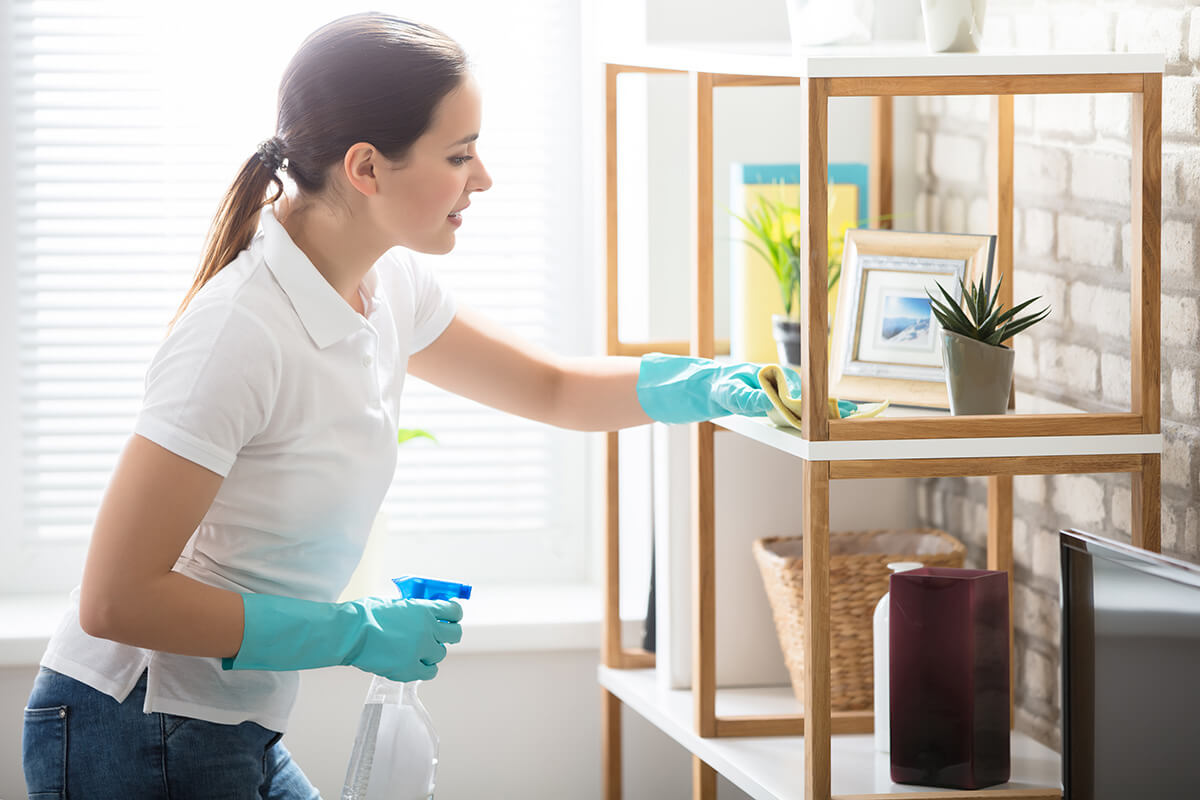
- Key areas to disinfect
When it comes to home cleaning, you might feel overwhelmed and not know where to begin. A good place to start is to identify surfaces that are touched by many individuals on a regular basis. These include remote controls, door handles, light switches, the toilet and electronic devices. They are prime ground for virus contamination and need to be disinfected regularly. If someone in your home is ill, be sure to increase the frequency of disinfection.
- Control dust
Household dust can contribute to a wide array of health problems such as allergies, asthma and other respiratory problems. Dust comes from various sources including dead skin particles from pets, bedding and furniture. To reduce the amount of dust in your home, be sure to clean air-conditioning filters, wash bedding monthly and vacuum regularly. Investing in an air purifier can also improve the quality of the air in your home.
- Kitchen storage and organisation tips
Here's an effective house cleaning tip: do not overlook the kitchen! Check that your fridge is below 4° C and your freezer is below -18° C to ensure that the food you consume is stored correctly and hence safe to consume. Always defrost raw food on a shelf below ready-to-eat food to avoid cross-contamination. In addition, remember to have a separate cutting board for preparing raw meat and be sure to disinfect it regularly. Never use the same cutting board to prepare ready-to-eat food.
2. What cleaning mistakes are you making?
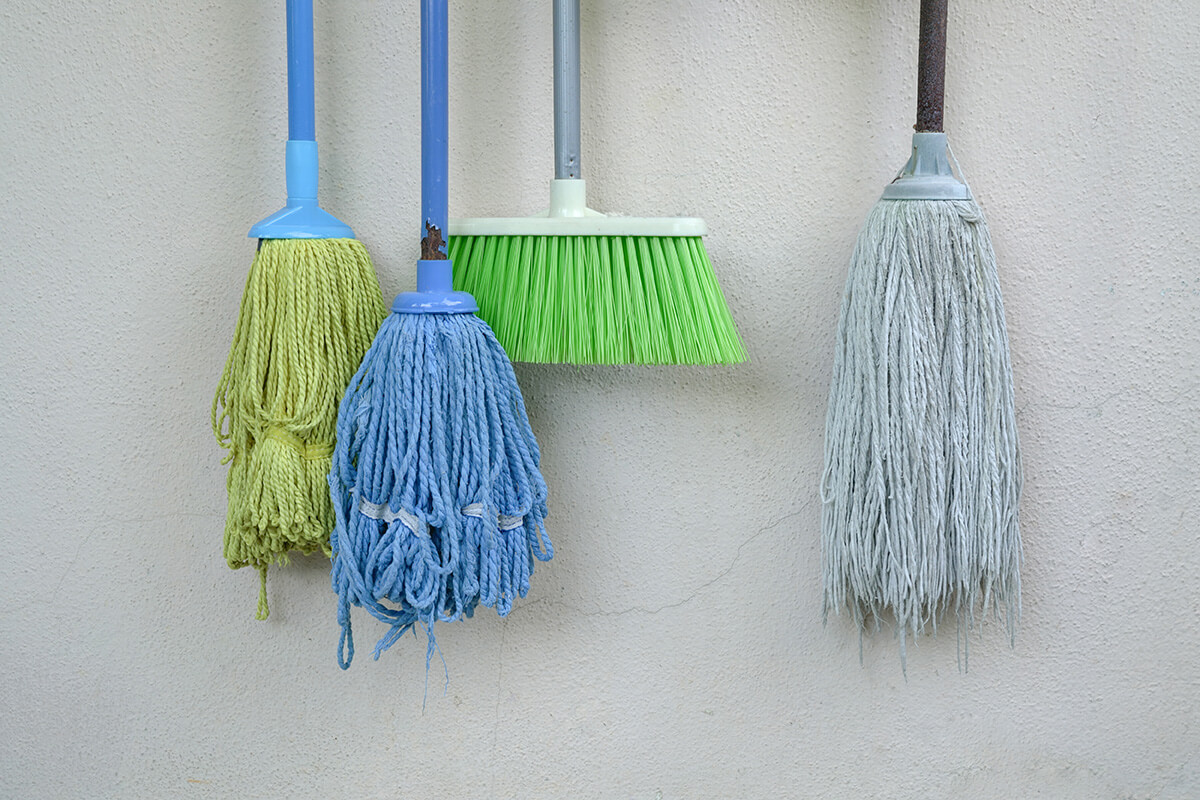
- Incorrectly storing your wet cleaning tools
If you're going to spend a few hours a week cleaning your home, you'll want to make sure that your efforts are not wasted. If you're reaching for an old rag to clean your countertops and a dirty mop to clean the floor, you're doing it wrong. Maintaining your home-cleaning products like mops and cleaning cloths is as important as the cleaning itself. After use, always squeeze the excess water off mops and hang in a well-ventilated area. Similarly, wash dirty cleaning cloths with detergent and leave to dry completely. Better yet, use a microfibre cloth. Its tightly-woven fibres are easy to maintain and won't leave lint behind.
- Using too much cleaning solution
It can be tempting to use more product than necessary, thinking that it'll yield better results. However, the opposite is true. Using too much product will leave residue and if not properly removed, may cause harm to people with allergies or asthma.
- Leaving clean-up to the last
Instead of letting dishes pile in the sink or allow clutter to accumulate, try cleaning as you go. Cleaning up spills as they happen and making an effort to put things back where they belong can mean a smaller to-do list when cleaning day rolls around.
3. What are the top tips to keep your office environment clean and safe?
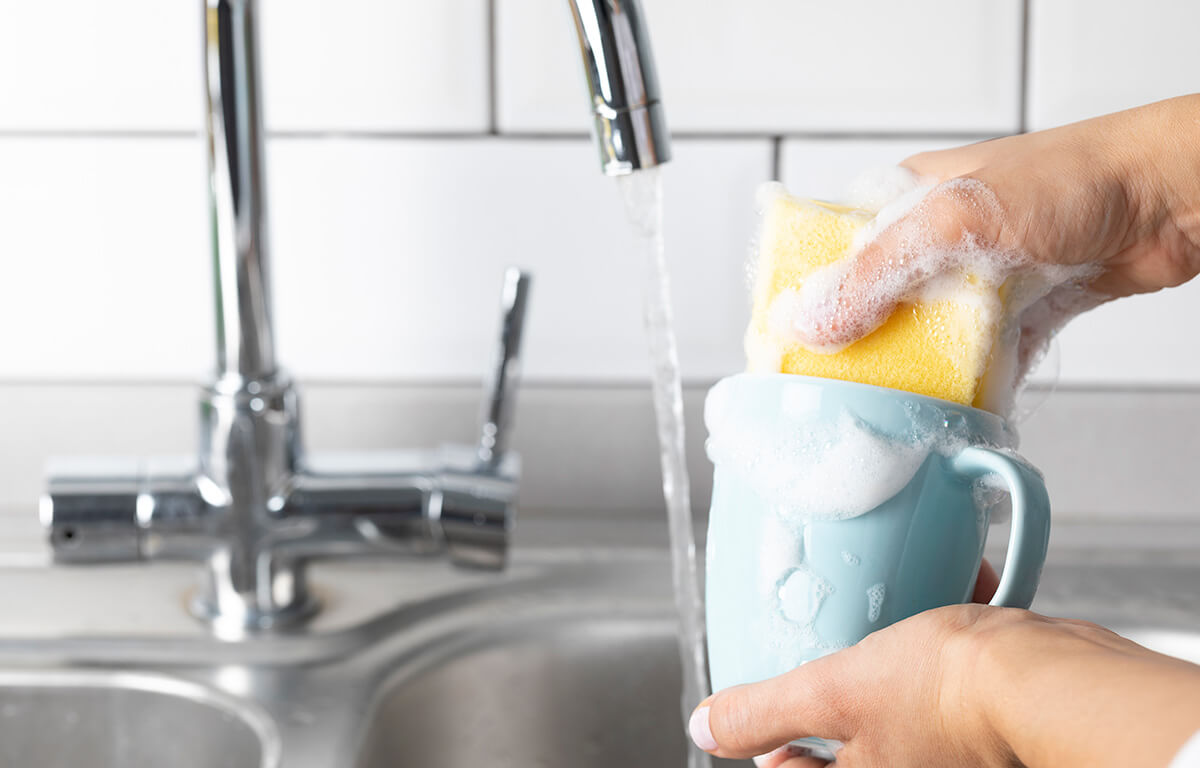
Many of us spend more time in the office than at home. Keep these top tips in mind when cleaning your office space.
- Wash your coffee cups
Are you familiar with the sight of dirty coffee cups piled in the
pantry sink? People love coffee at work, but germs and bacteria can live
in your cup, especially when they are not cleaned properly. If one of
your colleagues is sick, chances of flu germs landing in your cup are
higher, where the warm and damp environment is ideal for bacterial
growth. Be sure to wash your cup with soap and water after every use and
leave to dry in a well-ventilated area.
- Sanitise your work surfaces
Keeping your desk clean and tidy is a great place to start when it
comes to your health. Store sanitisers and disinfecting wipes handy by
your desk for easy access when you need to wipe down your keyboard or
phone. In a shared and confined space like the office, taking extra care
to disinfect your work area can make a significant difference to your
well-being.
- Keep the office fridge well-maintained
It is common for food to be left inside the shared office fridge for months. Keeping rotten food in the fridge can result in cross-contamination, causing employees to fall sick. While forgetting something you have left in the office fridge may be an honest mistake, everyone has a part to play in keeping it clean and hygienic. In addition, use food storage boxes instead of leaving food open. Set an example for others and encourage your co-workers to pick up these healthy habits for the benefit of all.
4. What are good personal hygiene habits to adopt?
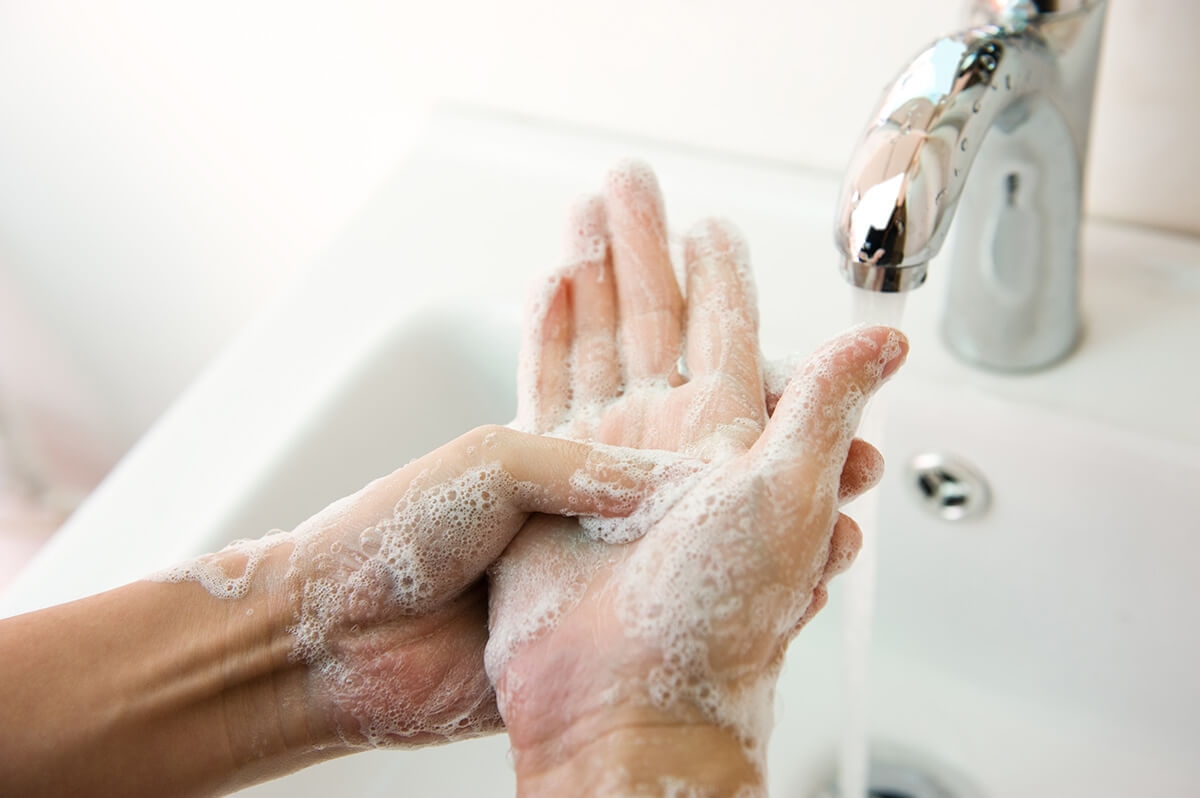
On top of maintaining a clean home and work environment, it's also important to observe good personal hygiene. Stay healthy by keeping this personal hygiene checklist in mind.
- Wash your hands thoroughly and regularly
Washing your hands regularly with soap and water is a great habit to have, whether or not the flu bug is around. If you think that splashing some water on your hands will do the job, you're wrong! Follow these steps provided by Health Hub when washing your hands:
- Palm to palm
- Between fingers
- Back of hands
- Base of thumbs
- Back of fingers
- Fingernails
- Wrists
- Rinse and wipe dry
- Avoid touching your eyes, nose and mouth
You'll never know what kind of bacteria is on your hands after touching handrails, doorknobs and telephones, so be sure to avoid touching your eyes, nose and mouth. It might be hard to resist the urge to touch your face, but make a conscious effort and remind those around you.
- Cover your cough or sneeze with a tissue
If you're ill or coming down with something, protect those around you by coughing and sneezing into a tissue. It's common courtesy to do so in crowded places such as public transport, and remember to wash your hands when you get the chance.
5. What should I buy to prevent illness?
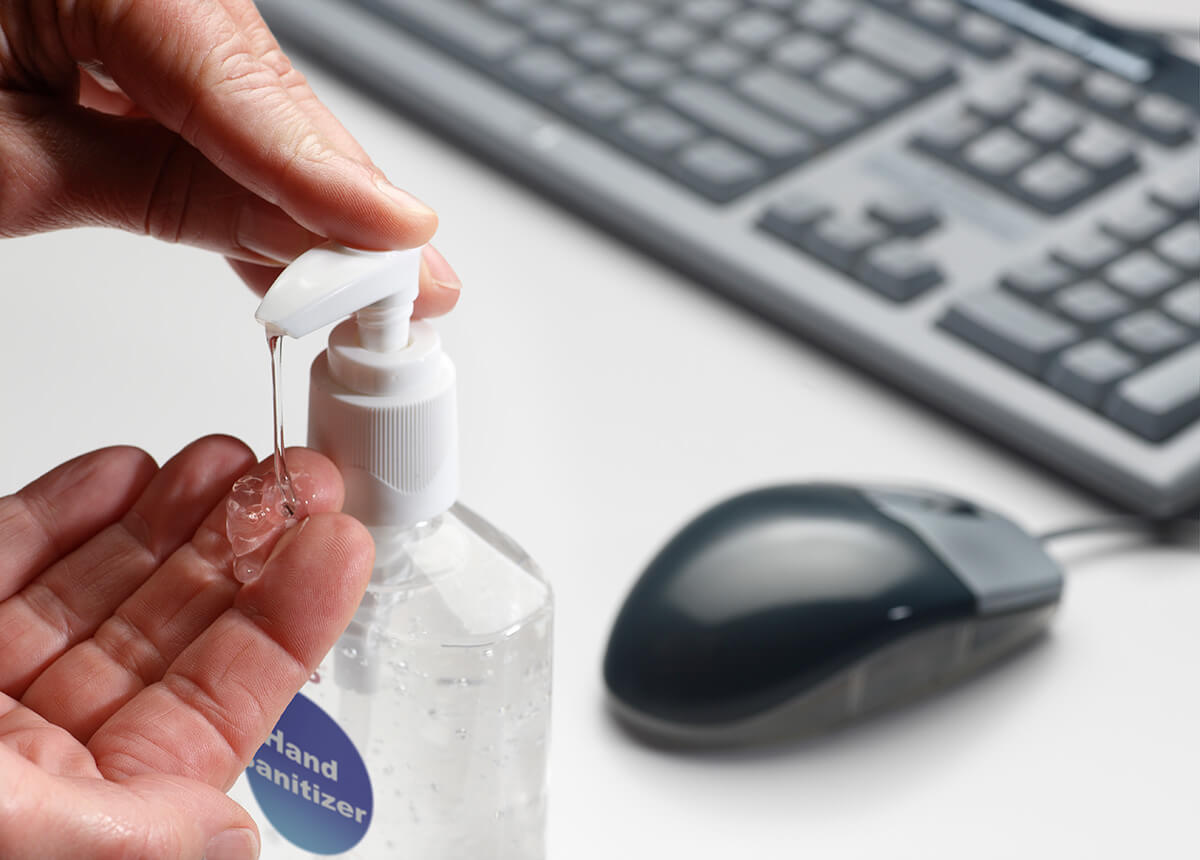
Now that you know the top cleaning tips and how to maintain good personal hygiene, you'll need to have the right products to help you along the way. Here's a list of cleaning products to have on hand to keep yourself well-protected!
- Hand sanitisers
Keep a small bottle of hand sanitiser in your bag for on-the-go
disinfection, especially when you don't have access to soap and water.
- Anti-bacterial wipes
These are handy for disinfecting surfaces like hawker centre tables and electronics.
- Anti-bacterial hand wash
Equip your home and office with anti-bacterial hand wash. They are formulated to eliminate bacteria and play an important role in everyday life.
- Floor cleaner
Keep your floors peachy clean with a powerful floor cleaner that is also a disinfectant.
On top of disinfecting your physical surroundings, it's equally important to take care of yourself from the inside. Add these to your cart the next time you go grocery shopping.
- Immunity-boosting foods
Incorporate more fruits and vegetables such as oranges, carrots and spinach into your diet as they are rich in vitamins and improve your immunity.
- Vitamin C
Vitamin C tablets are a convenient way to ensure you get your required daily intake.
A little effort goes a long way when it comes to keeping you and your loved ones healthy and safe. Consider these tips and tricks when cleaning your home and office and don't forget to maintain a high level of personal hygiene to effectively minimise falling sick.






